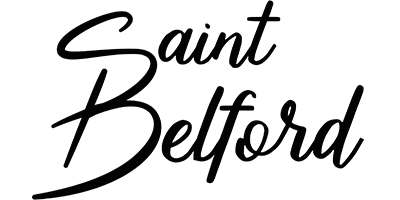Your Cart is Empty
🎉 Black Friday Sale On Now! 🎉 Free shipping to AU & NZ on orders $59+
🎉 Black Friday Sale On Now! 🎉 Free shipping to AU & NZ on orders $59+
How to set healthy boundaries that protect your wellbeing
October 28, 2020

Practising self-care is not just about the activities and rituals we engage in to recharge our minds and bodies. What we say no to is just as important. That’s where boundaries come in.
Boundaries are a way of clearly communicating our needs and our limits. They highlight what we will and won’t accept. They protect us, set the tone for our relationships and give us the space we need to prioritise our wellbeing.
As Jaye Hardy so eloquently put it:
Healthy boundaries are the difference between saying “yes” because we feel we ought to and saying “no” because we mean “no”.
What we say “yes” and “no” to will likely change over time, depending on our priorities, values and lifestyle. However, it’s our right and responsibility to decide what our limits are and then to communicate and assert those boundaries.
Implementing and asserting our boundaries isn’t always easy. Saying “no” can feel uncomfortable, but every “no” is a loud, affirming “yes” for what truly matters to you.
Need a little inspiration?
Here are five helpful responses to launch you into boundary-setting mode.
What is one boundary you’ve implemented to protect your energy, time and wellbeing? What are some practical steps you’ve taken to implement this boundary?
Walking alongside people who are experiencing mental health challenges is an aspect of life I’m incredibly passionate about; however, the labels around being a psychologist can put additional pressures on the work I choose to do. For example, being described or perceived as ‘caring’, ‘available’ or ‘there to support others’ can morph into ‘always caring’, ‘always available’ and ‘always there to support others’.
To protect my energy, time and wellbeing I have an automatic reply set up 24/7 on my emails. Despite my typical response time being within 24 hours, it gently and mindfully explains some important boundaries for me:
- I am in the office each Monday – Thursday (excluding public holidays)
- I may take up to four business days to respond to an email
- My incredible admin team are the best option for issues that need to be discussed in a timely way
- The Mindful Collective is not a crisis centre; however, we provide the details of online chats and phone numbers to contact when needed
When I implemented this it changed my life. Weekends became weekends, public holidays became mini holidays. I care so much for the people who are part of our collective (and humans more broadly) so this small, automated, practical tool has enabled me to continue caring for them in a sustainable way.
Amy Kate Isaacs, The Mindful Collective
Living and working with your business partner can make “switching off” challenging at times, so we’ve had to set some boundaries around work discussions that occur after hours.
Before we enter into a conversation about work, we always begin with, “I’ve got a work-related idea I want to discuss, do you want to chat about it now or should I write it down and we’ll talk about it later?”
Even though we tend to work the same hours, our physical and mental state will vary from day to day. I might feel mentally exhausted in the evening while Tom might experience a flood of inspiration. Without this boundary in place, it’s so easy to remain in work mode. This one simple question helps us draw the line between our work and personal lives.
Alex Phillips, Co Founder of Saint Belford
As I work from home I find it really helpful to head outside so that when I come back home it’s not like I’m ‘at work’ anymore. I find going for a walk or a bike ride a great way to shift my energy, let my mind and body catch up to one another and help my mind to process the day.
If I don’t map out the day ahead before I leave, I come home and make a list of my priorities with a clearer perspective. I follow this with an early shower if possible as I find anything water related really calming and grounding, and then I cook dinner with my partner and we sit down and enjoy it together.
Bridget Murphy, The Truest You
With correspondence either via text or increasingly via voice message these days, I make sure that I have time and space to reply and give my full attention instead of sending messages on the fly which just leaves me with an anxious and incomplete feeling.
I'm passionate about protecting my mornings - it's important to me to start the day with activities that help me wake up, feel calm and energised, and experience some fun.
I found that when I started working straight away or checked my phone first thing, I quickly felt stressed and overwhelmed by everything I needed to do. Those feelings stuck with me all day and actually hindered my productivity.
Now, my morning routine involves practicing mindfulness, playing with my dogs, doing a workout (or yoga), and eating breakfast. Then, I start my working day.
